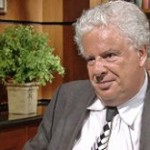Issue Briefs

The Fracking Miracle: George P. Mitchell and the Renewal of American Energy
Martin Sieff
April 10, 2019
US Secretary of Energy Rick Perry is a happy man: U.S. crude oil production has soared above 12 million barrels a day and it now surpasses both Saudi Arabia and Russia. In the past few years, the United States has reclaimed the hugely powerful and lucrative position it was supposed to have abdicated forever more than half a century ago in 1967 – as the crucial swing oil and energy producer for the entire world.
Shale boosts US economy
As James Osborne wrote in myplainsview.com on April 8, “Domestically, shale drilling boom has provided a boost to the economy in generally lowering energy costs for consumer and businesses and moving the country ever closer to a once unimaginable goal of becoming a net energy exporter.”
The reason for this is an unfashionable technology that was ignored by the high tech barons of Silicon Valley and their chorus of fawning courtiers in the media led by New York Times veteran columnist Thomas Friedman: It is called hydraulic fracking and though it was first used to extract oil and natural gas by the early 1950s, it was only in the mid-1990s that its use was dramatically expanded and upgraded.
The fracking revolution
Since then it has transformed the world by making enormous reserves of both oil and natural gas previously thought to be impossible to access in cost-efficient terms cheaply and safely. And it has also transformed prospects for the US economy and society through the 21st century.
For 50 years following 1967, the pall of inevitable global geostrategic decline lay over the US domestic economy and pundits of national grand strategy alike. They were all convinced that the tidal wave of apparently limitless, cheap, easily available energy that had fueled America’s unparalleled rise to global domination since the end of the US Civil War in 1865 was over. The future lay with the new energy cornucopias of the Middle East and then with the rapidly rising new major industrial economies of Northeast Asia.
Nobody saw it coming
Instead, in 20 short years, unanticipated by National Security Council strategists and energy experts alike this picture was transformed. The second Bush administration famously did not see it coming at all.
In his eight years in office, George W. Bush approved $13 billion to be poured into so-called renewable energy technologies, most notably biofuels that proved to be ridiculously expensive, impractical and plain unusable.
At the same time, ignored by government and university researchers and media pundits alike, the true transformation was coming from a direction no one expected: The old, get-your-hands dirty, unfashionable fossil fuel renewable extraction industries of the free market Heartland.
The key transformational moment came in 1997 when, Nick Steinsberger, an engineer of Mitchell Energy (now part of Devon Energy), applied the slickwater fracturing technique, using more water and higher pump pressure than previous methods in the Barnett Shale geological formation of Northern Texas. By the following year, the new technique had already proved to be so successful that the first 90 days gas production from the well called S.H. Griffin No. 3 exceeded production of any of the company’s previous wells.
A true game changer
This breakthrough proved to be a game changer: It made Mitchell Energy’s new gas extraction technique widely economical in the Barnet Shale, and was later applied to other shales, including the Eagle Ford and Braken Shale.
Most of all, it was astonishing triumph for Mitchell Energy’s founder George P. Mitchell, who was already in his mid-70s at the time. And Mitchell was the opposite of the software geeks of Silicon Valley or the multiple PhD mathematical geniuses of MIT and Cal Tech. He was a throwback to an entirely different America supposedly long since gone.
As the New York Times acknowledged in its obituary of him, “Fracking and other unconventional techniques have doubled North American natural gas reserves to three quadrillion cubic feet — the rough equivalent of 500 billion barrels of oil, or almost double Saudi Arabia’s crude inventory. The increase came after four decades of decline.”
Mitchell was the do-it-yourself innovator
Mitchell, who died at the age of 94 on July 26, 1913, never went to college. He was the son of an immigrant goat-herder from Greece. He took an obscure, long-sneered at technology that had been used on the fringes of the oil and gas extraction industry for generations, upgraded, improved and vastly expanded it –and made it a game changer. Where biomass, corn ethanol, wind power, solar power and all the other still-fringe, peripheral and impractical technologies failed, fracking – the use of explosive hydraulic chemical cocktails to liberate oil and natural gas in shale formations – succeeded.
The bias against Mitchell and fracking was enormous and ludicrous. In 2008, when his technology had already shown its worth and was transforming the energy map of America, Friedman solemnly proclaimed in his book “Hot, Flat and Crowded” that the American oil industry was the worst and most backward looking in the world because it allegedly spent less on research and development than China and other nations chasing the holy grail of limitless wind and solar power.
It was the most fatuous false prophecy since in October 1903 revered professor of mathematics and astronomy Simon Newcomb proclaimed that heavier than air flight was impossible. Less than two months later, two other unpretentious practical American geniuses, the Wright Brothers, who manufactured and repaired bicycles for a living, proved him wrong.
Mitchell experimented and succeeded
Mitchell too never went to Harvard, Yale or MIT, never won a Nobel Prize, was never interviewed on Charlie Rose. Most certainly he was never in the running for a MacArthur Foundation “genius,” award, an oxymoron for morons if ever there was one.
He was one of the last survivors of unfashionable old hardhat America, practical, unpretentious America, the America that rolled up its sleeves, and got things done. He even built an enlightened suburb north of Houston, The Woodlands. It has grown into a city with a population of 100,000.
George P. Mitchell came from the America that developed DDT and then used it to kill trillions of mosquitoes and banish malaria rather than the emotional, sentimental, science-ignorant world of Rachel Carson, whose “Silent Spring” emotionally presented a serious of false myths (egg shells were not getting thinner, butterflies were not becoming extinct) and got DDT banned. Her heritage doomed millions of people in Africa to death every year because malaria soared into resurgence again. Mitchell’s has already generated hundreds of thousands of new jobs and revived prosperity across the American Heartland.
Against all odds, Mitchell won.
He won not only because he was right, and not only because the free market enterprise system still works, despite the hold that pretentious intellectuals from the metastasizing big universities, bicoastal media and think tanks have on it: But also because there are two Americas in the 21st century, not one. And Mitchell embodied the best values of the despised and overlooked one.
A Heartland figure
He was a Heartland figure of the vast continental core of the nation of what I called in in my 2015 book “Gathering Storm” Wal-Mart Nation – the America of Country and Western music, Evangelical Christianity and NASCAR, and also of energy development and unfashionable heavy and hard-hat industry.
Mitchell was the obvious heir of John D. Rockefeller Sr. and in more ways than one. He had the entrepreneurial vision, drive, independence and courage and boldness to transform an entire continent by producing a new energy source that was cheaper, safer and more abundant than anyone had ever dreamed.
Rockefeller, it is now almost totally forgotten, saved 19th century America from the fearful curse of the thousands of people of every age who had previously been incinerated alive when the cans of kerosene fuel for cooking and heating they opened proved volatile when ignited and exploded catastrophically. Rockefeller imposed stringent quality controls and economies of scale on his unprecedented giant refineries and banished that nightmare at a stroke. (President Franklin D. Roosevelt, for one, had a lifelong horror of fire having seen as a young boy a beloved young aunt running screaming in flames ignited that way as she blazed to death).
In Mitchell’s case, his oil and natural gas produce a low carbon footprint and have none of the nightmarish environmental threats that civilian nuclear power plants generating endless quantities of eternally lethal plutonium cause.
Image of America reinventing itself
Mitchell was no killjoy, bigot or Know-Nothing. He was an exceptionally generous donor to universities and centers of technology and research, especially across Texas. The mainstream intellectual elites, however, ignored him when they could not criticize him. His very existence exposed and refuted their ignorance, incompetence and bigotries. Most of all, as Adrian Wooldridge wrote in the Schumpeter column of The Economist magazine on August 3, 2013, Mitchell was the embodiment of “a mighty force … America’s extraordinary capacity to reinvent itself.”
It is that ability to transform and renew the most innovative and unexpected technologies and resources that has transformed and renewed America yet again. Fracking lies behind the unanticipated Trump economic boom of the past two years. It lies behind the ability of the US government to leverage its economic power with unanticipated effectiveness against Iran and now Venezuela.
Mitchell, it should also be noted, was a First American – He was an immigrant to the country, though not an illegal one. He bought into the American dream, profited from it to an extraordinary degree, but repaid his debt to the country he loved a thousand-fold.
 |
Martin Sieff is a Global Policy Institute Fellow. He is author most recently of Gathering Storm: The Seventh Era of American History and the Coming Crises That Will Lead to It. |
The views and opinions expressed in this issue brief are those of the author.